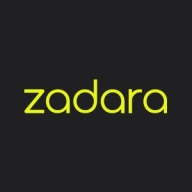


Qumulo and Zadara are competing products in the enterprise storage market. Qumulo has the upper hand in ease of deployment while Zadara excels in feature-rich offerings.
Features: Qumulo is known for its scalable storage solutions, real-time analytics, and ease of managing large data sets. Zadara provides multi-protocol support, elastic scalability, and high-security measures, making it flexible and effective for data management.
Room for Improvement: Qumulo could enhance its feature set to include greater customization options and advanced security features. Zadara could benefit from simplifying its setup process and reducing the initial learning curve for new users. Offering more transparent pricing could also be an area of improvement for both.
Ease of Deployment and Customer Service: Qumulo offers quick and simple deployment with robust customer support, minimizing disruptions during transition. Zadara's deployment allows for customization in complex environments but requires more initial effort, although its customer support remains reliable and effective in addressing user needs.
Pricing and ROI: Qumulo's competitive pricing offers a positive ROI for budget-conscious businesses. Zadara's higher cost is justified by its extensive features and flexibility, promising a solid ROI for enterprises with advanced storage needs.



FlashBlade is the industry’s most advanced scale-out storage for unstructured data, powered by a modern, massively parallel architecture to consolidate complex data silos (like backup appliances and data lakes) and accelerate tomorrow’s discoveries and insights.
Qumulo is a data storage and management platform that promotes object-based storage for users, backup archives, and surveillance. Its primary use case is to provide a cost-effective and feature-rich solution for managing large data.
Qumulo's data protection algorithm ensures the safety of node data, while its integration with backup platforms like Veeam and Veritas makes it easy to manage backups. The platform offers a good balance between operational cost and complexity versus feature set, making it an attractive option for businesses of all sizes.
Zadara is a powerful enterprise-level storage solution whose design enables it to handle every aspect of a user’s data storage needs. It can be deployed in any location, using any protocol, and storing any data type that an organization requires. With Zadara, organizations can do everything that they were able to do with more traditional systems in a cheaper and more efficient way.
Zadara Benefits
Some of the ways that organizations can benefit by choosing to deploy Zadara include:
Zadara Features
File analytics. Organizations can leverage a powerful analytics package that can provide them with critical insights. These tools can help users sort through their data and make more informed data management decisions.
Reviews from Real Users
Zadara is a highly effective solution that stands out when compared to many of its competitors. Two major advantages it offers are its extensive suite of cloud solution integrations and its object storage capability.
Steve H., the chief technology officer at Pratum, writes, “One of the most valuable features is its integration with other cloud solutions. We have a presence within Amazon EC2 and we leverage computer instances there. Being able to integrate with computing, both locally within Zadara, as well as with other cloud vendors such as Amazon, is very helpful, while also being able to maintain extremely low latency between those connections.”
Mauro R., the CEO of Momit SRL, says, “The object storage feature is wonderful. With traditional storage, you have a cost per gigabyte that is extremely high or related to the number of disks. With Zadara Storage Cloud, you have a cost per gigabyte that you can cut and tailor to your needs independent of the number or size of the disks.”
We monitor all File and Object Storage reviews to prevent fraudulent reviews and keep review quality high. We do not post reviews by company employees or direct competitors. We validate each review for authenticity via cross-reference with LinkedIn, and personal follow-up with the reviewer when necessary.